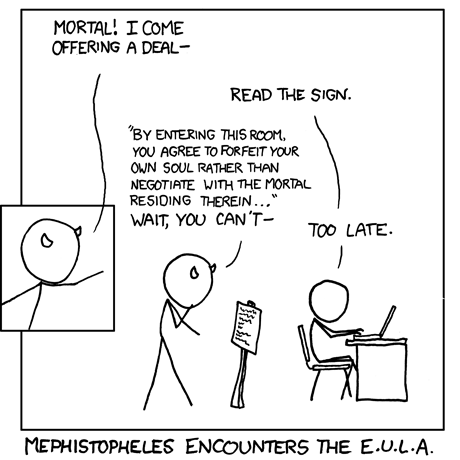Read an article in eWeek that left me scratching my head a bit. The nub below:
Google may be treading lightly with Chrome now, but the browser, combined with Google’s search and Apps, could end up being a big threat to Microsoft Windows’ market share.
Then later:
When Google accidentally leaked its Chrome comic book Sept. 1, reporters and analysts, including yours truly and my colleague Joe Wilcox, argued that Google could make Chrome the premier Web operating system by combining it with its market-leading search engine and increasingly popular SAAS (software as a service) applications. This would eventually constitute a threat to Windows.
And that would spell doom for Microsoft. It’s one thing to squeeze Microsoft out of the Internet game by dominating search and Web services. It’s another entirely to come after the software giant’s core operating system business, wielding the Web as your platform.
Must admit I have a lot of trouble seeing that, as I would have thought in order to supplant Windows, it would need to be gone, and to go from a browser that sits on an o/s to replacing the o/s seems to be a rather large leap. A huge leap, actually.
What they’re suggesting might happen is already a possibility today. There is definitely something that can supplant Windows altogether, and provide access to all the web-oriented apps, etc. that Google offers. Its cheap (sometimes free), stable and has pretty good UIs – in fact, a selection of UIs and different flavours. Its called Linux. However, for a variety reasons, it hasn’t kicked Microsoft’s ass yet (at least on the desktop – there are a few areas where it definitely does, such as web and other server functions).
To suggest, then, that, because Google has come out with a browser, that that will lead to the supplanting of Windows seems, IMHO, to be a bit far-fetched. I’m not suggesting that Google wouldn’t have the wherewithal to try to go after the desktop. They may do so. Though I’m not sure if they’d want to – they have a pretty good business model already…
Anyway, if and when they do something like that it will be so much larger an undertaking than Chrome that the links between that and Chrome would be tenuous at best, other than possibly bundling Chrome within whatever o/s they create.
Even possibly on the application front, I can see Google putting some pressure on MS, and how this might tie with Chrome. But not the o/s on which the whole thing runs.
So I think for the time being, Bill and Steve probably don’t have much to worry about with Chrome’s introduction, at least when it comes to the o/s business (IE on the other hand, is another matter altogether…).

